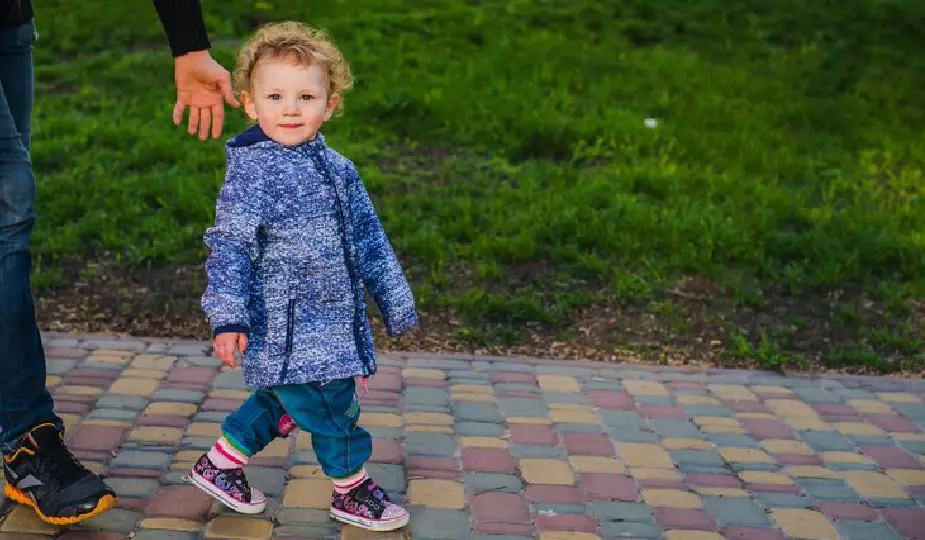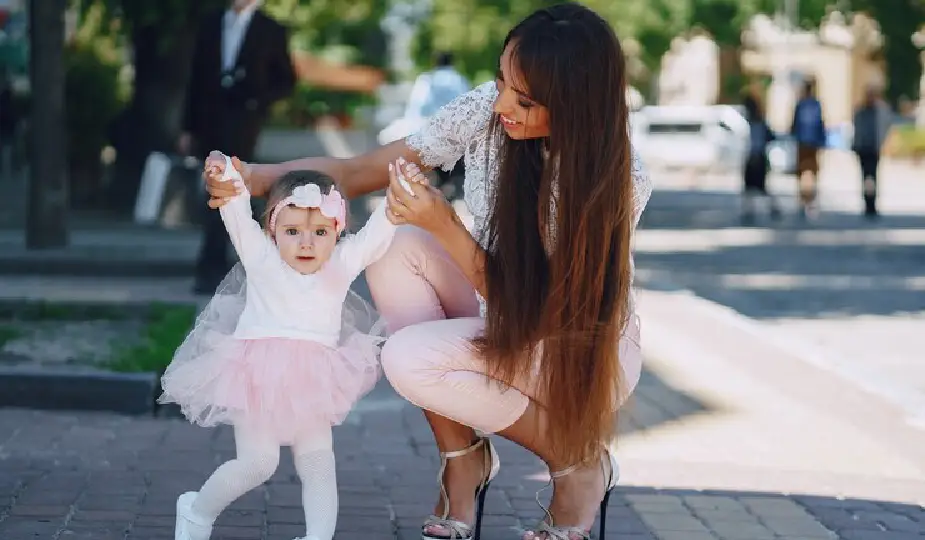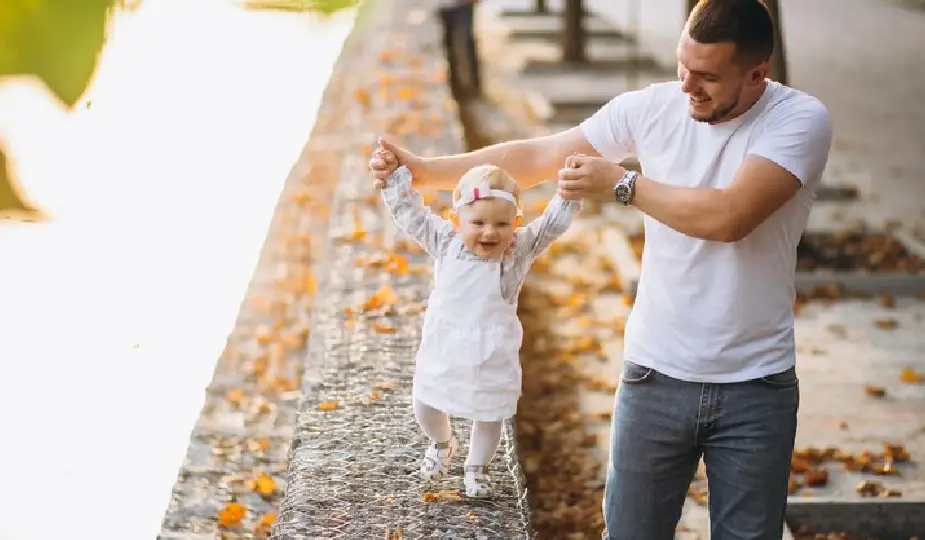How to Dress Baby Outside
Dressing your baby for outdoor adventures can be tricky, especially when the weather changes from one season to another. You want your little one to be comfortable, safe, and warm without overdoing it. So, how do you find the perfect balance? Here’s everything you need to know about how to dress baby outside for any type of weather or activity, ensuring your baby is snug and ready for outdoor fun.
Table of Contents
Introduction
Why It’s Important to Dress Babies Properly for the Outdoors
Babies, especially newborns, are not as efficient at regulating their body temperature as adults are. That’s why dressing them correctly when heading outside is essential to keeping them comfortable and avoiding the risk of overheating or getting too cold. Whether it’s a warm sunny day or a chilly winter morning, knowing how to dress baby outside for the conditions will make all the difference.
Abrigos Rosa Fucsia: The Ultimate Guide to Rocking the Bold Pink Coat

Factors to Consider When Dressing Babies for the Outdoors
Several factors come into play when deciding what your baby should wear outside. These include the weather, your baby’s age, and how long you’ll be outside. Different activities, from stroller rides to outdoor play, also require different clothing choices.
Understanding Your Baby’s Needs
The Basics of Baby Thermoregulation
Your baby’s ability to regulate their body temperature is still developing, which means they are more sensitive to temperature changes. Dressing them in layers and breathable fabrics helps to keep them comfortable, no matter what the weather throws at you.
Signs Your Baby Is Too Hot or Too Cold
If your baby’s cheeks are flushed, they are sweating, or they feel unusually warm, they might be overheating. Conversely, if their hands, feet, or nose feel cold, or if they seem lethargic, they could be too cold. Keep an eye on these signs to ensure your baby’s comfort outdoors.
Seasonal Dressing Guide for Babies
Dressing Babies for Warm Weather
When the weather is warm, you want your baby to stay cool but still be protected from the sun. Light, breathable fabrics like cotton are great for this.
Lightweight Fabrics and Breathability
Cotton onesies or loose-fitting clothing are perfect for warm weather. These materials allow air to circulate while absorbing sweat, keeping your baby cool.
How to Dress Babies in Cold Weather
Cold weather requires extra care when dressing your baby. It’s all about layers here to trap warmth without restricting movement or making your baby uncomfortable.
Layering to Trap Warmth
Start with a thin layer like a onesie, then add a fleece or wool layer, followed by a snowsuit or jacket. Layering ensures you can remove items if your baby gets too warm.
Dressing Babies for Mild or Transitional Weather
Spring and fall can be unpredictable, so layering is key. A light jacket or sweater over a bodysuit works well for these in-between seasons.

The Importance of Layers
How Layering Helps Regulate Temperature
Layering gives you the flexibility to adjust your baby’s clothing based on the changing weather. You can easily add or remove a layer to maintain your baby’s comfort throughout the day.
What Types of Layers Work Best for Babies?
Choose soft, breathable layers for your baby. Fleece is great for insulation, while cotton is perfect for the base layer. Avoid fabrics that might irritate your baby’s delicate skin.
Choosing the Right Fabrics for Your Baby
Cotton, Wool, and Other Fabrics: What’s Best?
Cotton is a great fabric for everyday wear, while wool or fleece is ideal for keeping your baby warm in colder conditions. Make sure all fabrics are gentle on the skin to prevent irritation.
Fabrics to Avoid for Outdoor Dressing
Avoid materials like nylon or polyester directly on your baby’s skin, as they can trap heat and cause irritation. Stick to natural fabrics for comfort.
Dressing for Specific Weather Conditions
How to Dress Baby Outside in the Rain
A waterproof layer, such as a raincoat or rain cover for the stroller, is essential when it’s raining. Keep your baby dry to prevent them from getting chilled.
Protecting Your Baby from the Sun
Sun protection is crucial, especially for babies under six months. Lightweight long sleeves, sun hats, and baby-safe sunscreen should be used to shield your baby from harmful UV rays.
Dressing for Windy or Humid Days
On windy days, a windproof jacket is helpful, while humid days call for extra breathable fabrics to prevent overheating.
How to Dress Baby Outside for Different Activities
Dressing for a Walk in the Park
For a casual stroll, a lightweight onesie with a hat for sun protection is perfect. If it’s cooler, add a blanket or light sweater.
How to Dress Baby Outside for the Beach
Light, breathable fabrics like cotton are best for a day at the beach. Don’t forget a wide-brimmed hat and plenty of sunscreen for sun protection.
Appropriate Clothing for Stroller Rides
Stroller rides often require an extra blanket or footmuff to keep your baby warm, especially if there’s a breeze.
The Role of Accessories in Baby Dressing
Hats, Mittens, and Booties: Essentials or Extras?
Hats are essential year-round, whether they’re protecting your baby from the sun or keeping them warm in colder weather. Mittens and booties are necessary in winter to keep tiny hands and feet warm.
The Importance of Baby Socks and Shoes
Socks are always important, even in warmer weather, as babies tend to lose heat through their feet. Shoes are less necessary until your baby starts walking, but soft booties are great for warmth.
Dressing Newborns vs. Older Babies
Dressing Your Newborn: Extra Care and Attention
Newborns need more layers and attention, as they lose heat quickly. Be sure to dress them warmly and avoid drafts.
How to Dress Mobile Babies for Outdoor Play
Once your baby starts crawling or walking, their clothing needs to allow freedom of movement. Dress them in durable, comfortable clothes that can handle outdoor play.
Safety Considerations When Dressing Baby Outside
Avoiding Overheating in Car Seats and Strollers
It’s easy for babies to overheat in car seats or strollers, especially with blankets or heavy clothing. Dress them in light layers and adjust as necessary to avoid overheating.
Dressing Safely for Babywearing
When babywearing, your body heat will help keep your baby warm, so dress them in fewer layers than you would otherwise. Make sure their airway is always clear.
Special Tips for Dressing Your Baby in Changing Weather
How to Adjust Layers Throughout the Day
Always bring extra layers when you’re heading outside with your baby. The weather can change quickly, so being prepared will ensure your baby stays comfortable.
Preparing for Weather Surprises
Having a few key items, like a rain cover or a light blanket, packed in your diaper bag can help you handle sudden weather changes when you’re on the go.
Quick Dressing Hacks for On-the-Go Parents
How to Pack a Diaper Bag for Outdoor Outings
Keep a spare outfit, a blanket, and weather-appropriate accessories like hats or mittens in your diaper bag so you’re always prepared for the unexpected.
Easy Outfit Changes for Babies Outside
Snap-on clothing or zippered onesies make quick outfit changes a breeze when you’re outside and need to act fast.
Conclusion: Ensuring Your Baby is Comfortable and Safe Outdoors
Dressing your baby for outdoor adventures doesn’t have to be complicated. By following these simple tips and considering the weather, your baby’s comfort, and the right fabrics, you can ensure that your baby is always dressed appropriately for outdoor fun. With a little planning and preparation, you’ll be ready to tackle any weather, keeping your little one happy and safe.
FAQs
How do I know if my baby is dressed too warmly or not enough?
Check your baby’s hands, feet, and cheeks. If they are too warm or too cold, adjust their clothing accordingly.
What is the best fabric for outdoor baby clothes?
Cotton is great for warm weather, while wool and fleece work well for colder temperatures.
Should I use sunscreen or just cover my baby with clothes?
Both! Use baby-safe sunscreen and cover your baby with lightweight, breathable clothing for full protection.
How can I keep my baby’s feet warm in cold weather?
Use thick socks or soft booties, and make sure they are well insulated from the cold ground.
Is it safe for babies to wear hats while sleeping outdoors?
It’s best to remove the hat once your baby falls asleep, especially if they are in a covered stroller or car seat, to avoid overheating.
